World Football

Can women play professional football ?
**Can Women Play Professional Football?** The topic discusses the possibility and reality of women playing professional football. It starts with a historical perspective, highlighting the early days when women were not allowed to participate in football due to societal norms and gender roles. However, the first recorded women's football match took place in 1895, despite opposition from male-dominated football associations. The development of women's football is also discussed, with the establishment of the Women's World Cup in 1991 marking a significant milestone for the sport. Professional leagues such as the National Women's Soccer League (NWSL) in the United States have provided opportunities for female players to earn a living through football. The skill and talent of female footballers are emphasized, stating that they possess the same level of skill and talent as their male counterparts. Many women have showcased their abilities on the world stage, earning recognition and respect from fans and peers alike. However, the topic also highlights the challenges faced by women in football, such as unequal pay and limited resources compared to men's teams. There is a need for continued advocacy and awareness to ensure that women's football receives the same level of attention and investment as men's football. In conclusion, women can indeed play professional football. They have demonstrated their skills and talents on various platforms, including international competitions like the Women's World Cup. While there is still room for improvement in terms of equality and resources, it is clear that female footballers are capable of competing at the highest level of the sport.
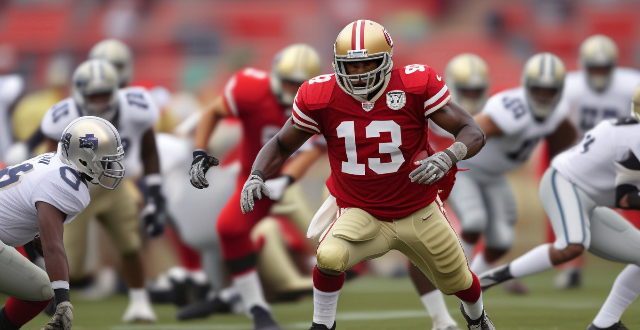
Who won the last World Cup in football ?
The last World Cup in football was won by Argentina, with Lionel Messi leading the team to their third championship. Brazil also has a long history of success, with their last victory in 2002.
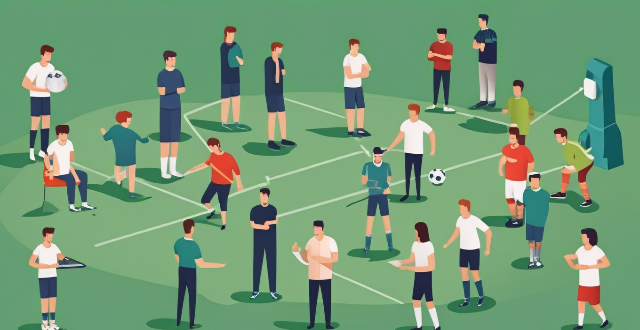
What is the role of a football manager ?
Football managers play a crucial role in the success of a football team, with responsibilities including tactical planning, team management, training, transfer market activities, media interactions, team morale, and budget management. They are responsible for analyzing opponents, devising strategies, selecting players, making substitutions, overseeing training sessions, developing young talent, identifying potential signings, negotiating contracts, representing the team in press conferences, providing post-match analysis, motivating players, resolving conflicts, and managing finances. Their decisions and leadership style greatly influence the direction and success of a football club.
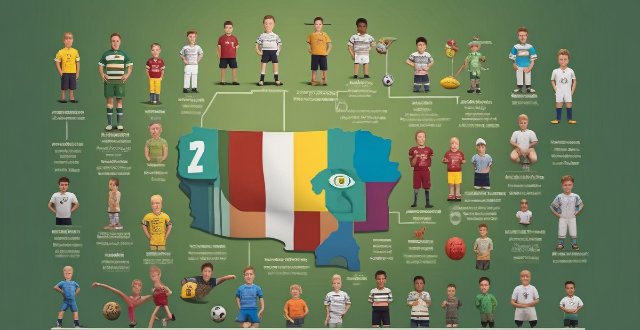
Which country has won the most FIFA World Cup titles ?
The country that has won the most FIFA World Cup titles is Brazil, with a total of five (5) titles. The Brazilian national football team is widely considered one of the most successful in the history of the sport. Other countries that have achieved significant success in the World Cup include Germany, Italy, Argentina, and Uruguay.

What are the rules for offside in football ?
The offside rule in football is designed to maintain fairness and prevent cheating. It states that a player cannot receive the ball while being closer to the opponent's goal than the second-to-last opposing player without being penalized. The rule encourages active play and prevents "goal hanging." Players are not penalized for merely being in an offside position but must interfere with play or gain an advantage from it. Exceptions include corner kicks, direct free kicks, throw-ins, goal kicks, kick-offs, and situations where the ball was last touched by an opponent. Adhering to this rule ensures fair play and enhances the integrity of football matches.

What are some examples of successful disability sports organizations or events around the world ?
Disability sports have been gaining popularity and recognition worldwide, with many organizations and events showcasing the talent and determination of athletes with disabilities. Here are some examples of successful disability sports organizations and events around the world: 1. Paralympic Games: An international multi-sport event for athletes with physical and intellectual disabilities, held immediately after the Olympic Games in the same host city. 2. Special Olympics World Games: A global event for athletes with intellectual disabilities, offering competition in various sports such as swimming, athletics, and basketball. 3. International Wheelchair Basketball Federation (IWBF): The governing body for wheelchair basketball worldwide, organizing international competitions and promoting the development of wheelchair basketball across different regions. 4. Cerebral Palsy Football World Cup: A biennial international football tournament for players with cerebral palsy, providing an opportunity for these athletes to showcase their skills and promote awareness about cerebral palsy. 5. International Blind Sports Association (IBSA): Dedicated to promoting sports for visually impaired athletes, organizing world championships and other events in various sports such as goalball, judo, and swimming. 6. World Deaf Volleyball Championships: An international competition for deaf volleyball players, promoting the development of deaf sports and providing a platform for deaf athletes to showcase their talent and compete at the highest level. 7. World Dwarf Games: A multi-sport event specifically designed for individuals with dwarfism, offering a range of sports such as swimming, track and field, and powerlifting, providing opportunities for athletes with dwarfism to compete and showcase their abilities.
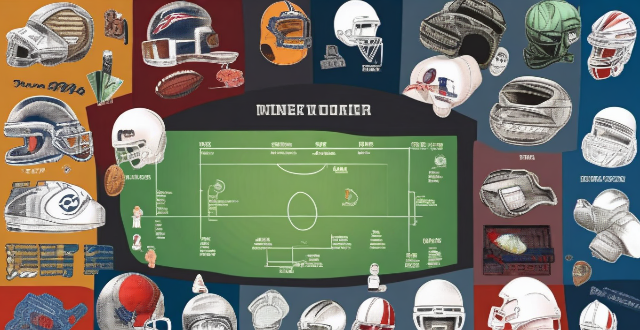
How much money do top football players earn per week ?
Top football players can earn a significant amount of money per week, with factors such as performance, club affiliation, market value, sponsorship deals, and image rights affecting their earnings. Some of the highest-paid players, like Lionel Messi and Cristiano Ronaldo, can earn millions per week when taking into account their salary, bonuses, and endorsements. However, it's important to note that these earnings are the result of immense talent, hard work, and dedication to the sport.

Where will the next Summer Olympics football tournament be held ?
The next Summer Olympics football tournament will take place in Tokyo, Japan from July 23 to August 8, 2021. The matches will be played at several stadiums across Japan, including Saitama Stadium, Sapporo Dome, International Stadium Yokohama, Nippon Gaishi Stadium, and Kashima Soccer Stadium. There will be 16 men's national teams and 12 women's national teams competing for gold medals in their respective categories. Due to the COVID-19 pandemic, there have been some changes to the schedule and format of the tournament, including limited spectators, staggered scheduling, and regular testing for all participants.

When is the next FIFA World Cup scheduled ?
The 2026 FIFA World Cup will be held from June 8 to July 19, 2026, in multiple cities across Canada, Mexico, and the United States. This marks the first time the tournament is hosted by more than one country, signaling a broader sharing of the event's benefits and fostering greater cultural exchange. The decision to expand hosting rights is expected to have significant economic and promotional impacts on football globally.

Can you identify any international sports events that have taken significant steps towards achieving gender parity among competitors ?
The text discusses the growing emphasis on achieving gender parity in sports, highlighting significant steps taken by various international sports events towards this goal. It mentions the Olympics' strides in ensuring equal participation and medal distribution for men and women, FIFA's establishment of the Women's World Cup and increased investment in women's football, tennis Grand Slams offering equal prize money and television coverage for both genders, and the Rugby World Cup's efforts to promote women's rugby and implement gender equality policies. The text concludes that these initiatives demonstrate a commitment to creating a more equitable playing field for all athletes, regardless of gender, acknowledging that there is still work to be done.
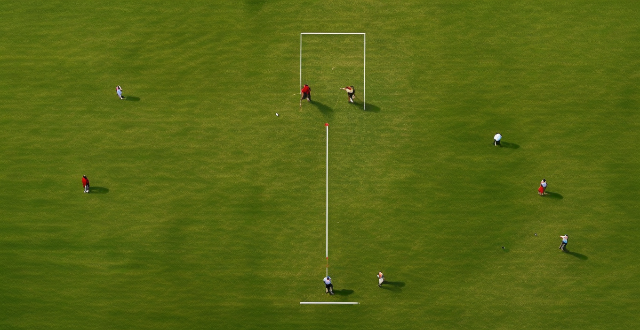
How many players are on a football team ?
Football team composition typically consists of 11 players on the field, divided into goalkeepers, defenders, midfielders, and forwards. Goalkeepers protect the goal, defenders prevent opponents from advancing, midfielders control the game flow, and forwards score goals. A typical lineup includes one goalkeeper, four defenders, four or five midfielders, and two or three forwards.
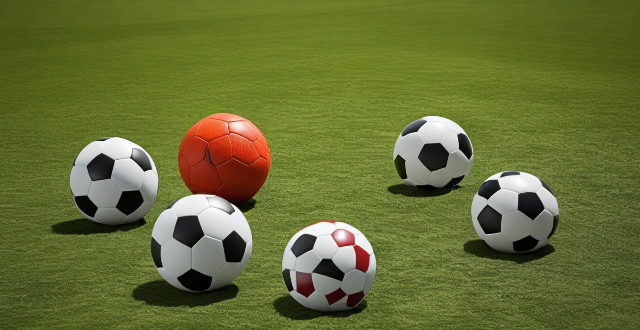
Who are some of the top goal scorers in this year's football season ?
This year's football season has seen exceptional performances from players across the globe, with Erling Haaland, Lionel Messi, Karim Benzema, Cristiano Ronaldo, and Robert Lewandowski leading the pack as top goal scorers. These players have not only showcased their individual talents but also played a crucial role in their teams' successes throughout the season.

How many minutes are there in a regulation football match ?
The duration of a regulation football match is 90 minutes, split into two 45-minute halves with a 15-minute halftime break. However, additional time may be added at the end of each half to compensate for stoppages during the game, known as "stoppage time" or "injury time." When including pre-match warm-ups and halftime, the total time for the event can range from approximately 115 to 125 minutes. In some competitions, matches may extend even further due to extra time or penalty shootouts.

Who are the best midfielders in the world right now ?
Midfielders play a crucial role in football, connecting defense and attack. They are often referred to as the engine room of the team due to their ability to control the pace of the game, distribute the ball effectively, and create scoring opportunities. Here are some of the best midfielders in the world right now: 1. Kevin De Bruyne (Manchester City) - Key Skills: Vision, Passing Accuracy, Set Pieces; Achievements: Premier League titles, UEFA Champions League experience. 2. Luka Modrić (Real Madrid) - Key Skills: Ball Control, Dribbling, Playmaking; Achievements: UEFA Champions League titles, Ballon d'Or winner. 3. Bruno Fernandes (Manchester United) - Key Skills: Goal Scoring, Creativity, Set Pieces; Achievements: Premier League titles, Europa League winner. 4. Joshua Kimmich (Bayern Munich) - Key Skills: Versatility, Passing Range, Defensive Awareness; Achievements: Bundesliga titles, UEFA Champions League winner. 5. N'Golo Kanté (Chelsea) - Key Skills: Tackling, Stamina, Reading of the Game; Achievements: Premier League titles, UEFA Champions League winner.

Can you recommend some breathtaking yet less crowded hiking trails around the world ?
This guide recommends breathtaking yet less crowded hiking trails around the world, from the Sierra Nevada in California to the Himalayas in Nepal. It offers highlights and crowd avoidance tips for each trail.

What is the role of the World Health Organization (WHO) in promoting global health ?
The World Health Organization (WHO) plays a crucialThe World Health Organization (WHO) plays a crucial by providing leadership, setting norm WHO's work is focused on improving health outcomes worldwide through various activities such as convening stakeholders, establishing international standards for health, generating scientific knowledge to inform policy decisions, providing technical support to countries, and monitoring global health trends.

What are the must-visit family-friendly attractions around the world ?
Traveling with family is an amazing experience that creates lasting memories. Here are some of the must-visit family-friendly attractions around the world: 1. Disneyland Paris, France 2. Universal Studios Hollywood, USA 3. Tokyo DisneySea, Japan 4. Legoland Deutschland, Germany 5. LEGOLAND Florida Resort, USA 6. Efteling, Netherlands
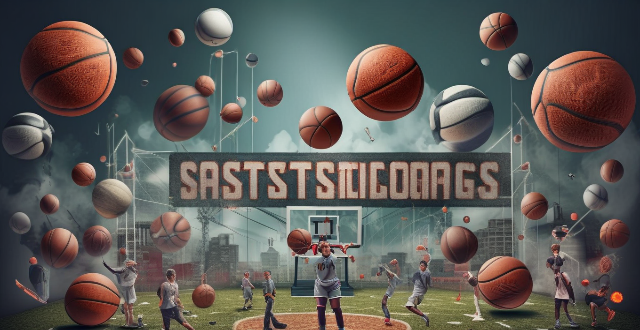
How do advanced statistics change the strategy in sports like basketball and football ?
Advanced statistics are revolutionizing basketball and football by providing coaches and players with detailed data to make informed decisions. In basketball, metrics like True Shooting Percentage and Player Efficiency Rating have led to changes in shooting efficiency, pace of play, and defensive strategies. The Golden State Warriors and Houston Rockets are examples of teams leveraging advanced analytics successfully. In football, metrics such as Win Probability Added and Expected Points Added help coaches evaluate player performance and shape strategic decisions. The New England Patriots and Seattle Seahawks are among the teams known for their innovative use of analytics. As technology advances, we can expect more sophisticated strategies in both sports.

How can women overcome gender bias in the startup world ?
Gender bias is a pervasive issue in many industries, including the startup world. Women face unique challenges when it comes to funding, networking, and building their businesses. However, there are strategies that women can employ to overcome these obstacles and thrive in the startup world. Here are some tips: 1\. Build a Strong Network: Networking is crucial for any entrepreneur, but it's especially important for women who may not have as many natural connections in the industry. Attend industry events, join professional organizations, and connect with other entrepreneurs on social media. Make sure to diversify your network by seeking out people from different backgrounds and perspectives. 2\. Develop Your Skills: Take courses or attend workshops to develop your skills in areas such as finance, marketing, and management. This will not only make you a more well-rounded entrepreneur but also demonstrate your commitment to learning and growing. 3\. Be Confident and Assertive: Women are often socialized to be polite and deferential, which can sometimes hold them back in business settings. Practice being confident and assertive in meetings and negotiations. Remember that you deserve to be taken seriously and that your ideas and opinions are valuable. 4\. Seek Out Mentors and Advisors: Find mentors or advisors who can offer guidance and support as you navigate the startup world. Look for people who have experience in your industry and who share your values and goals. 5\. Leverage Your Strengths: Women often bring unique strengths to the table, such as empathy, collaboration, and creativity. Emphasize these qualities in your pitches and marketing materials, and don't be afraid to highlight how they set you apart from your competitors. 6\. Stay Persistent: Starting a business is hard work, and there will inevitably be setbacks along the way. Stay persistent and focused on your goals, even when faced with rejection or failure. Remember that every challenge is an opportunity to learn and grow. 7\. Advocate for Yourself and Others: Speak up about issues of gender bias and inequality whenever you see them. Use your platform to advocate for change within your industry and support other women who are facing similar challenges. By working together, we can create a more equitable and inclusive startup world for all entrepreneurs.
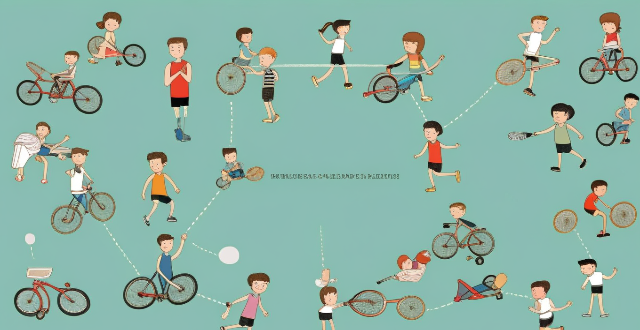
Is it possible for sports to transcend political differences and bring nations together ?
The article discusses the potential of sports to transcend political differences and bring nations together. It highlights three key ways in which sports can achieve this: through competition, cultural exchange, and diplomacy. The power of sports is demonstrated through various examples, such as the Olympics, World Cup, NBA, Formula One, Ping-Pong Diplomacy, and Peace Games. The article concludes that while political conflicts may still exist outside of sports, these activities provide a platform for positive interactions and collaboration that can lead to lasting change.

Are there any specific exercises or drills for skill improvement in basketball/football/tennis, etc. ?
Topic: Skill Improvement Exercises and Drills in Basketball, Football, and Tennis Basketball: - Dribble the ball with alternating hands and in a figure 8 motion to improve ball handling skills. - Practice shooting free throws and spot shooting to enhance accuracy and consistency. - Work on lateral movement and closeout drills to improve defensive positioning and quickness. Football (Soccer): - Pass the ball against a wall and in a triangle formation to improve passing accuracy and touch. - Practice shooting at targets and receiving passes before shooting to enhance shooting accuracy and speed. - Work on marking and tackling drills to improve defensive skills and technique. Tennis: - Hit crosscourt groundstrokes and alternate forehand and backhand shots to improve accuracy and consistency. - Practice serving to targets and focusing on second serves to enhance serving reliability and placement. - Work on lateral movement and net approach drills to improve court coverage and net play.
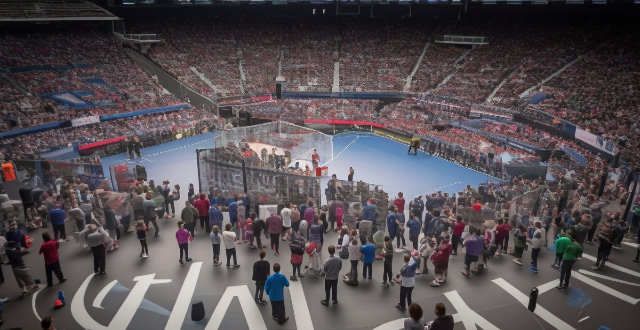
How has globalization affected the popularity of sports around the world ?
Globalization has had a significant impact on the popularity of sports worldwide. It has led to increased international competition, greater exposure for athletes and teams, and a more interconnected sporting culture. With the rise of global communication and transportation networks, athletes and teams from different countries can easily compete against each other, leading to numerous international tournaments and events. Social media platforms have provided greater exposure for athletes and teams, while live streaming services have made it possible for anyone with an internet connection to watch their favorite sports events live from anywhere in the world. Additionally, globalization has fostered a more interconnected sporting culture, leading to the adoption of foreign sports by many countries and the exchange of ideas and practices between sports organizations worldwide.

What are some examples of successful initiatives that use sports to promote social inclusion ?
This text discusses successful initiatives that use sports to promote social inclusion. It highlights five examples of such initiatives: Street Football World, Homeless World Cup, Wheelchair Basketball Initiatives, Sporting Equals, and Gender Equality in Sports Programs. These initiatives aim to unite people through football, inspire homeless people, promote disability inclusion, challenge discrimination in British Asian communities, and encourage women's participation in various sports, respectively. The activities include global tournaments for marginalized communities, international tournaments for homeless teams, local wheelchair basketball leagues, community cricket events, and women's sports leagues. The impact of these initiatives is significant, with increased public awareness about homelessness, personal transformation stories of participants, improved physical fitness and self-esteem among disabled individuals, reduced instances of racism and discrimination in sport, and higher visibility and recognition of women in sports.
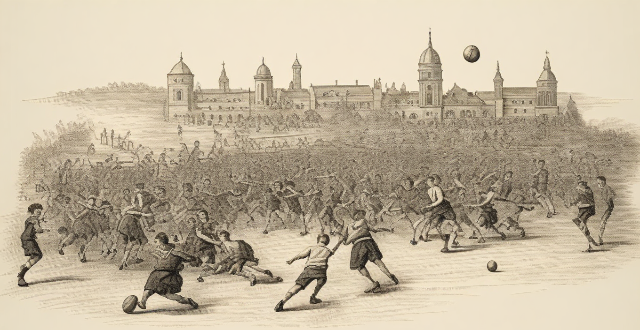
What is the history behind the rivalry between Real Madrid and Barcelona ?
The rivalry between Real Madrid and Barcelona is rooted in the political, cultural, and social differences between the cities of Madrid and Barcelona. The first meeting between the two clubs took place in 1902, but it was not until the 1930s that the rivalry truly began to take shape. Key moments in the rivalry's history include La Liga title races, El Clásico matches, player transfers, and clashes between fans. This rivalry has had a significant impact on Spanish football by raising the level of competition and promoting the sport globally.

What is the most popular sport in Hollywood movies ?
Boxing, basketball, football, and baseball are among the most popular sports depicted in Hollywood movies. These films often explore themes of perseverance, determination, teamwork, and redemption, making for compelling storytelling.

How does the media influence the perception of different sports and their respective fan bases ?
The media significantly impacts sports perception and fan bases by focusing on popular sports, creating celebrity athletes, promoting major events, fostering online communities, and shaping public opinion. This influences how people engage with and view various sports.

Can you provide examples of how different cultures have contributed to the evolution of various sports ?
Sports have evolved over time, and different cultures have contributed to this evolution in various ways. The game of cricket originated in south-eastern counties of England and has since spread worldwide, particularly in the Commonwealth. Baseball was developed in the United States during the early 19th century and has become one of the country's national sports. Soccer can be traced back to an ancient Chinese game called "cuju". However, the modern version of the game that we know today originated in England in the 19th century. Basketball was invented by Dr. James Naismith in Springfield, Massachusetts in 1891. Sumo wrestling is a traditional Japanese sport that dates back thousands of years. Australian Rules Football (AFL) is a unique sport that originated in Melbourne, Victoria in the mid-19th century.